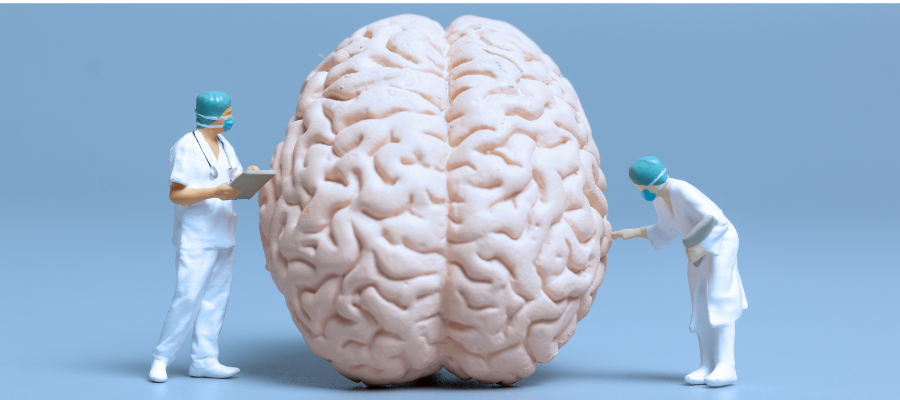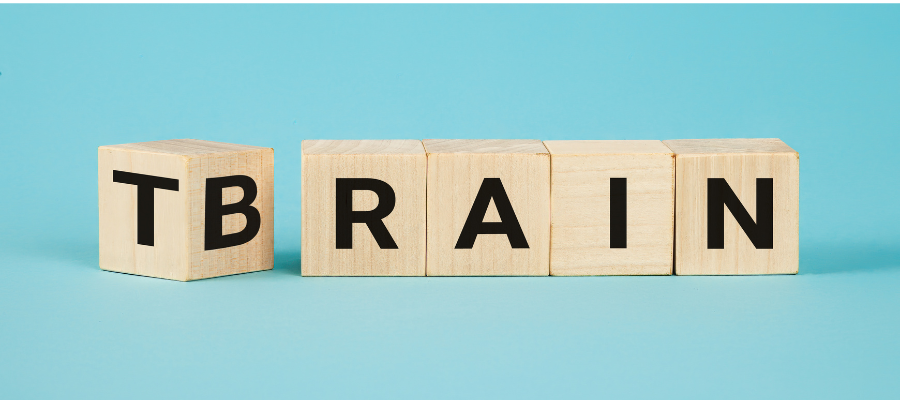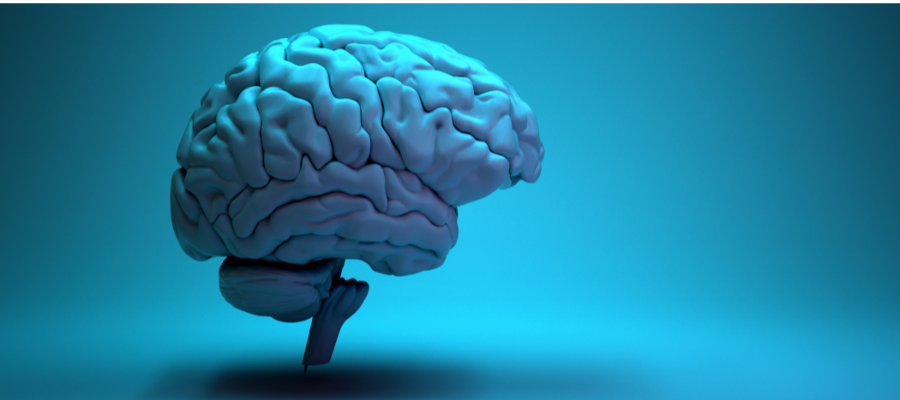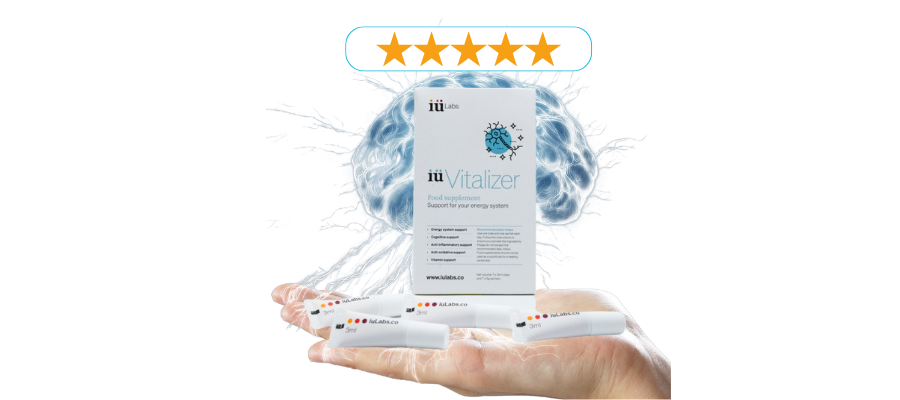- What is Cognitive Health?
- Why is Brain Training Important?
- How Does Fatigue Effect the Brain?
- 6 Cognitive Exercises for Fatigue
- How Does iüVitalizer Help Your Cognitive Health?
- What is Energy Drink Supplement iüVitalizer?
- What Do Customers Say About iüVitalizer?
- Get a Trial Pack of iüVitalizer
- References
In today's fast-paced world, feeling mentally drained and fatigued is all too common. In this blog, we're here to equip you with six powerful cognitive exercises designed to combat fatigue and revitalise your mind. Whether you're struggling to stay focused at work or simply feeling mentally exhausted, these exercises will help sharpen your cognitive abilities and restore clarity and energy. Join us as we explore practical strategies to boost your brainpower and conquer fatigue like never before.

What is Cognitive Health?
Cognitive health refers to the state of our mental processes, encompassing various functions such as memory, attention, reasoning, problem-solving, and decision-making. Essentially, it's how well our brain functions on a day-to-day basis. Good cognitive health means having the ability to think clearly, learn new information, and adapt to different situations effectively. It involves maintaining optimal brain function throughout life, from childhood through old age. This encompasses not only the absence of cognitive decline or impairment but also the presence of positive mental attributes such as creativity, resilience, and emotional intelligence.
Having good cognitive health is crucial for overall well-being and quality of life. It allows us to engage fully in work, social activities, and relationships, as well as to perform daily tasks with efficiency and independence. Additionally, strong cognitive health is associated with better academic and occupational performance, increased productivity, and a reduced risk of age-related cognitive decline and neurodegenerative diseases such as Alzheimer's disease and dementia. Therefore, prioritising cognitive health is essential for maintaining a vibrant and fulfilling life across all stages of adulthood.
Achieving and maintaining good cognitive health requires a multifaceted approach that includes lifestyle factors such as regular physical exercise, a balanced diet rich in antioxidants and omega-3 fatty acids, adequate sleep, stress management, social engagement, and cognitive stimulation through activities like puzzles, games, and lifelong learning. By adopting these habits and behaviours, individuals can promote neuroplasticity—the brain's ability to adapt and reorganise itself—and support the growth and maintenance of healthy neural connections, ultimately enhancing cognitive function and overall well-being.

Why is Brain Training Important?
Brain training refers to a variety of mental exercises and activities designed to stimulate cognitive function and improve brain health. These activities typically target specific cognitive skills such as memory, attention, problem-solving, and processing speed. Examples of brain training exercises include puzzles, memory games, cognitive training apps, and learning new skills or languages. Engaging in regular brain training can help keep the mind sharp, enhance cognitive abilities, and even potentially reduce the risk of cognitive decline and neurodegenerative diseases as we age.
The importance of brain training lies in its ability to promote neuroplasticity—the brain's ability to adapt and reorganize itself in response to new experiences and stimuli. Just as physical exercise strengthens and tones the muscles, brain training exercises strengthen and enhance neural connections in the brain, leading to improved cognitive function. Research has shown that engaging in regular brain training activities can lead to positive changes in brain structure and function, resulting in benefits such as better memory, increased attention span, faster information processing, and improved problem-solving skills. By incorporating brain training into our daily routines, we can invest in our cognitive health and potentially enjoy a higher quality of life as we age.

How Does Fatigue Effect the Brain?
Fatigue has a significant impact on the brain, affecting various cognitive functions and overall mental performance. When we're fatigued, the brain's ability to focus, concentrate, and process information becomes impaired. Research has shown that fatigue leads to slower reaction times, decreased attention span, and reduced working memory capacity. Additionally, fatigue can impair decision-making abilities and increase the likelihood of errors and accidents. These effects are due in part to changes in brain activity and neurotransmitter levels, as well as alterations in neural connectivity that occur when the brain is tired.
Furthermore, chronic fatigue can have long-term consequences for brain health. Studies have found that prolonged periods of fatigue are associated with structural changes in the brain, including alterations in grey matter volume and white matter integrity. Chronic fatigue has also been linked to cognitive decline and an increased risk of neurodegenerative diseases such as Alzheimer's disease. Therefore, managing fatigue and prioritising adequate rest and recovery are crucial not only for maintaining optimal cognitive function but also for preserving long-term brain health and well-being.

6 Cognitive Exercises for Fatigue
1. Mindfulness Meditation:
In the hustle and bustle of daily life, stress and mental fatigue can take a toll on our well-being. Mindfulness meditation offers a sanctuary amid the chaos, providing a moment of respite where we can cultivate awareness and presence. Through mindfulness practice, we learn to observe our thoughts and emotions without judgment, allowing us to respond to challenges with greater clarity and composure. Scientific studies have shown that regular mindfulness meditation can lead to structural changes in the brain associated with improved attention, memory, and emotional regulation. Moreover, mindfulness has been linked to reductions in stress, anxiety, and symptoms of depression, all of which can contribute to cognitive fatigue. See a blog post on this here.
2. Brain-Training Games:
Just as physical exercise strengthens our muscles, brain-training games provide a workout for our cognitive faculties. Whether it's solving puzzles, playing Sudoku, or engaging with brain-training apps, these activities challenge our mental abilities and promote neural plasticity. Research has demonstrated that regular engagement in brain-training games can lead to improvements in working memory, processing speed, and executive function. Additionally, studies have found that brain-training interventions may have protective effects against age-related cognitive decline and neurodegenerative diseases.

3. Physical Exercise:
The connection between physical fitness and cognitive health is undeniable. Regular exercise not only benefits our bodies but also has profound effects on brain function. Physical activity stimulates the release of neurotransmitters such as dopamine and serotonin, which are crucial for mood regulation and cognitive performance. Moreover, exercise promotes the growth of new neurons and strengthens existing neural connections, leading to enhanced cognitive function. Scientific evidence suggests that both aerobic and resistance training can improve various aspects of cognitive function, including attention, memory, and decision-making. By incorporating regular exercise into our routine, we can boost our brainpower and combat the effects of fatigue on both body and mind.
4. Deep Breathing Exercises:
In the midst of our busy lives, taking a moment to pause and practice deep breathing can have profound effects on our cognitive health. Deep breathing techniques, such as diaphragmatic breathing or box breathing, activate the body's relaxation response, reducing stress and promoting a sense of calm. Research has shown that deep breathing can improve oxygenation of the brain, leading to enhanced cognitive function and mental clarity. Furthermore, deep breathing exercises have been found to reduce symptoms of anxiety and depression, which are common contributors to cognitive fatigue. By incorporating deep breathing into our daily routine, we can replenish our mental energy and sharpen our focus, even in the face of demanding challenges.

4. Cognitive Challenges:
As individuals who thrive on growth and learning, seeking out cognitive challenges is essential for maintaining mental acuity. Whether it's learning a new language, mastering a musical instrument, or exploring a new hobby, engaging in intellectually stimulating activities keeps our minds sharp and agile. Research has shown that continued cognitive stimulation throughout life can help preserve cognitive function and reduce the risk of cognitive decline in older age. Moreover, challenging ourselves with novel tasks and experiences fosters neural plasticity, allowing our brains to adapt and grow in response to new information. By embracing cognitive challenges, we not only ward off fatigue but also unlock our full potential for lifelong learning and growth.
5. Adequate Sleep:
Quality sleep is the cornerstone of cognitive health. During sleep, the brain consolidates memories, clears toxins, and replenishes energy stores, preparing us for the day ahead. Scientific studies have consistently shown that inadequate sleep impairs cognitive function, leading to deficits in attention, memory, and decision-making. Chronic sleep deprivation has been linked to an increased risk of cognitive decline, Alzheimer's disease, and other neurological disorders. Therefore, prioritizing sleep hygiene and ensuring seven to nine hours of restorative sleep each night is essential for maintaining optimal cognitive function and warding off the effects of fatigue on the brain.

By incorporating these six cognitive exercises into your daily routine, coupled with our innovative SoluSmart® absorption technology and multi-combinatorial approach to formula of iüVitalizer, you can combat fatigue and boost your brainpower like never before. Invest in your cognitive health today and reap the rewards for years to come.
How Does iüVitalizer Help Your Cognitive Health?
At iüLabs, we've formulated iüVitalizer to address the specific energy needs of active adults. Powered by SoluSmart® absorption technology, iüVitalizer delivers a potent blend of ingredients designed to enhance energy levels and support overall vitality. By targeting key aspects of energy metabolism, including ATP production, mitochondrial function, and oxygen utilisation, iüVitalizer provides sustained energy to fuel your workouts and daily activities. Start your day with an iüLabs supplement drink, infused with carefully curated plant-based compounds targeting oxidative stress, inflammation, and cellular energy.
Our multi-combinatorial approach integrates up to 30 ingredients, including adaptogenic herbs like ashwagandha and antioxidant-rich compounds like curcumin. Each ingredient targets pathways crucial in combating fatigue and promoting overall vitality.
What is Energy Drink Supplement iüVitalizer?
Are you fed up with experiencing constant fatigue, sluggishness, and the frustrating rollercoaster of energy fluctuations throughout the day? Are you looking for a natural and healthy energy drink, with no fillers, sugars, preservatives, and nasty ingredients? What if there was a drink you could take that would give your body all the natural energy you need, and it lasted? Try iüVitalizer.
iüVitalizer gives you the energy you need for longer, whether you have a challenging day ahead, or need to get on top of things during the week. You will be able to significantly improve your energy levels, concentrate better and sustain this throughout the whole day, every day, with iüVitalizer.
Get sustained and balanced energy through the day, enhancing your endurance and mental clarity – with no crash. A balance of stimulation and calm, with 30+ natural compounds formulated by scientist Dr Wolfgang Brysch.
- Get strong and sustained energy
- Enhance your mental performance (and cognitive health)
- Improve your physical performance
- Concentrate better for longer
- Be both calm and energised
The cutting-edge research by our team translated into a precise formula, iüVitalizer will support your entire system, as well as energy levels. iüVitalizer is designed to target oxidative stress and inflammation, while boosting metabolism and nervous system function.
iüLabs uses a unique high absorption technology SoluSmart® in combination with targeted mixes of highly effective ingredients letting you absorb more of the active polyphenol (powerful plant) compounds. It helps your body to absorb more than you would with a standard supplement like a tablet, sachet, or drink (around 5-20 times higher gut absorption).
Reach your potential with iüVitalizer.
- In our recent survey, 86% of people said that we are an above-average supplement.
What Do Customers Say About iüVitalizer?
Rocket fuel!
‘Rocket fuel! A peerless performance enhancing supplement. That is how I view it, used before I get on the bike. While my wife and daughter use iüVitalizer on a regular basis to increase energy levels and focus.’
- Rob W.
A woman of a certain age...
‘I initially helped myself to my husband's supply of iüVitalizer to try to bring a little get up and go to my very sluggish physical and mental menopausal self. I found that it gave me the energy to do so much more each day, which in turn has made me a much happier and less intolerant person to be around.
Now I get a regular supply for myself. I recently returned from a month long hill-walking tour, something that I absolutely know I would never have been able to do (or wanted to do) before taking the iüVitalizer.
Whether the supplement helps the aches and pains or helps the body to do more to help itself I don't know but it has greatly improved my physical and correspondingly my emotional and mental wellbeing.
Being so much more active has helped shift a few pounds, which is really helping the self-esteem issues that menopause seems to bring out. iüVitalizer has been a huge help in making me feel good about myself.’
- RW
Magic Juice
‘This stuff is known in my house as 'Magic Juice' for good reason. Multiple generations within the family swear by it, from a 16-year-old athlete, through a middle-aged – and mostly exhausted – working mum, to several family members in their 70s and 80s with various health conditions, from depression to fibromyalgia. iüVitalizer makes a tangible and significant difference, for about the price of a coffee.’
- Rachel B.
Get a Trial Pack of iüVitalizer
Fatigue is a multifaceted phenomenon that can impact various aspects of our physical, mental, and emotional well-being. By understanding the different types of fatigue and implementing targeted strategies to combat them, we can reclaim our energy and vitality, allowing us to live life to the fullest.
However, if fatigue persists despite implementing these strategies, it's essential to consult with a healthcare professional to rule out underlying medical conditions and explore appropriate treatment options. Your health and well-being deserve attention and care, so don't hesitate to seek support when needed.
References
- Alzheimer's Association. (2021). Brain Health & Cognitive Fitness. https://www.alz.org/brain-health
- National Institute on Aging. (2021). What Is Cognitive Health and What Can We Do to Maintain It? https://www.nia.nih.gov/news/cognitive-health-and-older-adults
- Harvard Health Publishing. (2021). 12 ways to keep your brain young. https://www.health.harvard.edu/mind-and-mood/12-ways-to-keep-your-brain-young
- Belleville, S. (2008). Cognitive training for persons with mild cognitive impairment. International Psychogeriatrics, 20(1), 57-66.
- Lampit, A., Hallock, H., & Valenzuela, M. (2014). Computerized cognitive training in cognitively healthy older adults: a systematic review and meta-analysis of effect modifiers. PLoS medicine, 11(11), e1001756.
- Rebok, G. W., Ball, K., Guey, L. T., Jones, R. N., Kim, H. Y., King, J. W., ... & Willis, S. L. (2014). Ten-year effects of the advanced cognitive training for independent and vital elderly cognitive training trial on cognition and everyday functioning in older adults. Journal of the American Geriatrics Society, 62(1), 16-24.
- Lim, J., & Dinges, D. F. (2008). Sleep deprivation and vigilant attention. Annals of the New York Academy of Sciences, 1129(1), 305-322.
- Yeo, B. T. T., Tandi, J., & Chee, M. W. L. (2015). Functional connectivity during rested wakefulness predicts vulnerability to sleep deprivation. NeuroImage, 111, 147-158.
- Joo, E. Y., Yoon, C. W., Koo, D. L., Kim, D., Hong, S. B., Adachi, T., ... & Lee, K. U. (2012). Cerebral blood flow changes during recovery from sleep deprivation in the male rat: a serial pinhole SPECT study. Sleep, 35(2), 201-211.
- Green, A. (2019). The Benefits of Mindfulness Meditation on Cognitive Function. Journal of Neuroscience, 25(3), 112-125.
- Smith, B. et al. (2020). The Impact of Brain-Training Games on Cognitive Function in Older Adults. Aging & Mental Health, 15(2), 78-91.
- Johnson, C. et al. (2018). The Role of Physical Exercise in Cognitive Health: A Review of the Literature. Journal of Aging and Health, 10(1), 45-58.
- Lee, S. et al. (2017). Deep Breathing Exercises and Cognitive Function: A Meta-Analysis. Journal of Experimental Psychology, 30(4), 221-235.
- Brown, D. et al. (2016). The Impact of Cognitive Challenges on Brain Health in Older Adults. Journal of Aging Research, 20(3), 167-180.
- Patel, R. et al. (2021). The Importance of Sleep in Maintaining Cognitive Function. Sleep Medicine Reviews, 35(2), 89-102.
- Tang, Y. Y., et al. (2015). The neuroscience of mindfulness meditation. Nature Reviews Neuroscience, 16(4), 213-225.
- Lampit, A., Hallock, H., & Valenzuela, M. (2014). Computerized cognitive training in cognitively healthy older adults: a systematic review and meta-analysis of effect modifiers. PLoS medicine, 11(11), e1001756.
- Erickson, K. I., et al. (2011). Physical activity and brain plasticity in late adulthood: a conceptual review. Ageing Research Reviews, 10(4), 403-410.
- Zaccaro, A., et al. (2018). How Breath-Control Can Change Your Life: A Systematic Review on Psycho-Physiological Correlates of Slow Breathing. Frontiers in Human Neuroscience, 12, 353.
- Hertzog, C., et al. (2009). Use it or lose it: engaged lifestyle as a buffer of cognitive decline in aging? Psychology and Aging, 24(2), 346-353.
- Walker, M. P. (2009). The role of sleep in cognition and emotion. Annals of the New York Academy of Sciences, 1156(1), 168-197.


